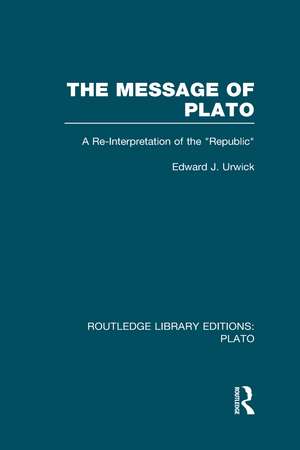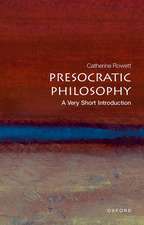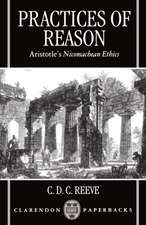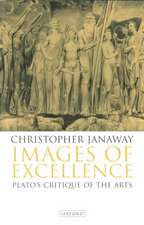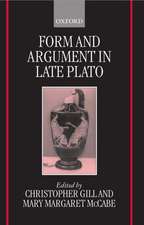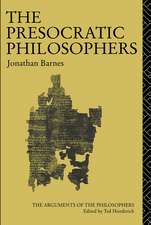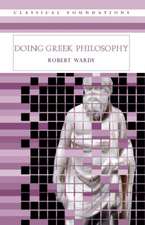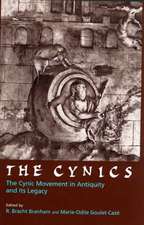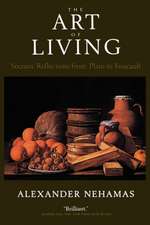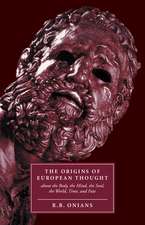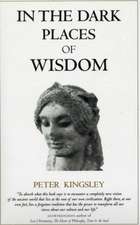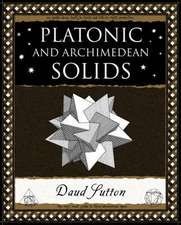The Message of Plato (RLE: Plato): A Re-Interpretation of the Republic: Routledge Library Editions: Plato
Autor Edward Urwicken Limba Engleză Hardback – 10 sep 2012
Din seria Routledge Library Editions: Plato
- 30%
 Preț: 8421.22 lei
Preț: 8421.22 lei - 13%
 Preț: 294.77 lei
Preț: 294.77 lei - 34%
 Preț: 766.12 lei
Preț: 766.12 lei - 23%
 Preț: 320.36 lei
Preț: 320.36 lei - 34%
 Preț: 625.16 lei
Preț: 625.16 lei - 34%
 Preț: 826.15 lei
Preț: 826.15 lei - 54%
 Preț: 417.04 lei
Preț: 417.04 lei - 18%
 Preț: 887.10 lei
Preț: 887.10 lei - 33%
 Preț: 830.28 lei
Preț: 830.28 lei - 34%
 Preț: 765.77 lei
Preț: 765.77 lei - 34%
 Preț: 680.13 lei
Preț: 680.13 lei - 33%
 Preț: 1002.69 lei
Preț: 1002.69 lei - 22%
 Preț: 323.17 lei
Preț: 323.17 lei - 11%
 Preț: 306.62 lei
Preț: 306.62 lei - 34%
 Preț: 624.79 lei
Preț: 624.79 lei - 34%
 Preț: 625.86 lei
Preț: 625.86 lei - 34%
 Preț: 767.38 lei
Preț: 767.38 lei -
 Preț: 493.34 lei
Preț: 493.34 lei - 33%
 Preț: 1001.43 lei
Preț: 1001.43 lei - 34%
 Preț: 765.77 lei
Preț: 765.77 lei - 18%
 Preț: 1284.12 lei
Preț: 1284.12 lei
Preț: 766.12 lei
Preț vechi: 1155.71 lei
-34% Nou
Puncte Express: 1149
Preț estimativ în valută:
146.73€ • 151.17$ • 122.91£
146.73€ • 151.17$ • 122.91£
Carte tipărită la comandă
Livrare economică 24 februarie-10 martie
Preluare comenzi: 021 569.72.76
Specificații
ISBN-13: 9780415624060
ISBN-10: 0415624061
Pagini: 276
Dimensiuni: 156 x 234 mm
Greutate: 0.56 kg
Ediția:1
Editura: Taylor & Francis
Colecția Routledge
Seria Routledge Library Editions: Plato
Locul publicării:Oxford, United Kingdom
ISBN-10: 0415624061
Pagini: 276
Dimensiuni: 156 x 234 mm
Greutate: 0.56 kg
Ediția:1
Editura: Taylor & Francis
Colecția Routledge
Seria Routledge Library Editions: Plato
Locul publicării:Oxford, United Kingdom
Public țintă
General, Postgraduate, Professional, and UndergraduateCuprins
Part 1: The Ancestry of Plato's Faith 1. The Quest of Socrates: the Western Ancestry of Plato’s Doctrine 2. The Vedic Interpretation of Human Life: the Eastern Ancestry of Plato’s Doctrine. Part 2: The Preparation of the Soul and An Account of the Righteousness of the Lower Path 3. Analysis of the Republic, Book I and Part of Book II- the Explanation of the Question, ‘What is the Nature of Righteousness?’ and the Construction of the Good State 4. Analysis of the Republic Book II (part) and Books III and IV- the Purification of the Good State and the Education of the Good Soul – the Definition of the Righteous Citizen Part 3: Spiritual Realisation or the Path of Religion 5. Analysis of the Republic Book V (part) – the Community of Occupations for Men and Women, The Community of Husbands, Wives and Children, The Kingship of the Philosopher 6. An Explanatory Chapter Concerning the Conception of the Upper Path or Path of Religion 7. Analysis of the Republic Book V (part) and Book VI (part) - the Meaning of Philosophy, or Wisdom – Religion, the Characteristics of the Philosopher or Seer 8. Analysis of the Republic Book VI (part) and Book VII - the Full meaning of Spiritual Realisation and the Final Education of the Philosopher 9. The End of Book VII of the Republic – the Disciple’s Return to Active Life, the Philosopher’s Return to the World, the Possible Salvation of Society Part 4: The Dangers of the Lower Path 10. Analysis of the Republic Books VIII and IX- the Causes of the Degeneration of the Good State and of the Good Man 11. The Tenth Book of the Republic – the Banishment of Art and Poetry, the Account of the Soul’s Immortality, the Law of Reincarnation Part 5: Summary and Discussion 12. Discussion of the Doctrine in the Light of Modern Thought; Index and Glossary
Descriere
Edward Urwick’s original work draws upon Plato’s best known work, the Republic, to provide a new interpretation of Plato’s teaching based upon Indian religious thought. Most scholars have sought to interpret the Republic from the standpoint of politics, ethics, and metaphysics and indeed the accepted title of the dialogue – Concerning a Polity or Republic – would seem to legitimate this. Even the alternative title for the work – Concerning Justice – seems to justify such an approach. Yet the original Greek work, Dikaiosune, had a fuller meaning: righteousness. The author believes this gives a truer clue to the meaning of the dialogue. It is a discussion of righteousness in all its forms, from the just dealing of the law-abiding citizen to the spirit of holiness in the saint.
